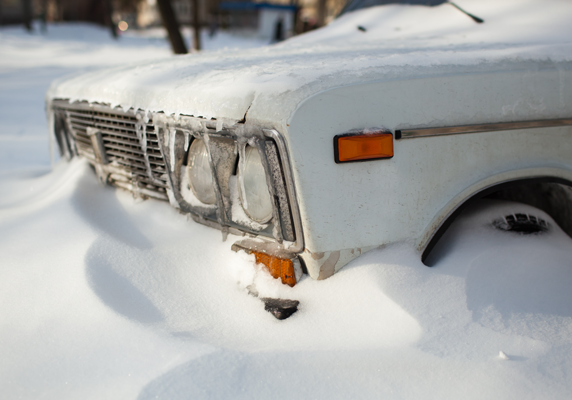
 With winter on the way, now is the time to take a good, hard look at your current vehicle.
With winter on the way, now is the time to take a good, hard look at your current vehicle.
In Canada, icy roads, snowy drives, and frozen engines are part of the norm, so you need to take a proactive approach to prevent last-minute surprises.
If your vehicle is older, it might require repairs. Or maybe you have already been repairing it, but it keeps needing more fixes. If this is the case, it’s time to start thinking — should you continue fixing up the old car, or trade it in for a new (or new-to-you) one?
Fixing Your Old Car
Pros
It is almost always less expensive to repair a car then buy a new one.
- Insurance and registration fees are typically more expensive on a new car.
- If your car is paid off and you weren’t planning on replacing your car yet, you might not be prepared for costs associated with a new car (monthly payments, etc.).
- If your car has sentimental value, you get to keep it.
Cons
Depending on the extent of the repairs, you may end up spending more in the long run.
- Older cars can be unpredictable and if the warranty is up, you can almost certainly expect more repairs down the line.
- Your older car’s value will continue depreciating whereas if you sell or trade it in now, you may be able to get more money back from the sale.
Buying a New Vehicle
Pros
- New cars have modern safety features like automatic emergency braking, backup cameras, and blind-spot monitoring. Used cars, if bought from a reputable dealer, also undergo rigorous safety tests.
- New “bells and whistles.” Similar to above, many newer cars might come with extra features that can be helpful for Canadian winters, such as remote start, heated seats and steering wheels, heated side mirror, all-wheel drive, and more.
- A new, or new-to-you, car will typically come with warranty for the vehicle, so any repairs in the specified timeframe will be covered.
Cons
If you are not prepared financially, it can cost more to buy a new car than to keep an old one, especially if the old car is paid off.
- Depreciates in value quickly. A new car typically loses an estimated 22% of its value in the first year.
- If you have a sentimental attachment to your old car, it can be difficult to give that up.
Questions to Ask Yourself
- What repairs are absolutely essential for your current vehicle?
- What do those repairs cost approximately?
- How much money have you put into repairs already?
- Will your car be able to get through the winter months without repairs or risk of a last-minute emergency?
- If you were to buy a new car, would you be looking to buy a brand-new vehicle, or open to a quality used vehicle?
Financing Options
If you’ve decided to keep fixing your old car, you still need to know how to finance the repairs. Using vehicle equity to make your car like new is an option.
If you’ve decided to stop sinking money in to this car, you might consider a quality used vehicle. In this instance, however, it’s always best to work out financing terms before you start shopping. Figure out what you can afford and then evaluate what that buys you.
At Prudent Financial, we offer car title loans you can use to fix up your old vehicle. Our sister company, Prudent Value Cars, offers quality used vehicles that are rigorously tested.
Learn more today. Call 1-888-852-7647 or visit www.prudentfinancial.net.
